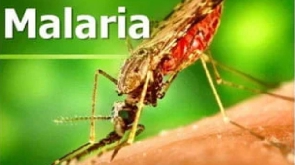 More than 95% of malaria is found in Africa.
More than 95% of malaria is found in Africa.
A cheap malaria vaccine that can be produced on a massive scale has been recommended for use by the World Health Organization.
The vaccine has been developed by the University of Oxford and is only the second malaria vaccine to be developed.
Malaria kills mostly babies and infants, and has been one of the biggest scourges on humanity.
There are already agreements in place to manufacture more than 100 million doses a year.
It has taken more than a century of scientific effort to develop effective vaccines against malaria.
The disease is caused by a complex parasite, which is spread by the bite of blood-sucking mosquitoes. It is far more sophisticated than a virus as it hides from our immune system by constantly shape-shifting inside the human body.
That makes it hard to build up immunity naturally by catching malaria, and difficult to develop a vaccine against it.
It is almost two years to the day since the first vaccine - called RTS,S and developed by GSK - was backed by the World health Organization.
Dr Tedros Adhanom Ghebreyesus, director-general of the WHO, said today was a moment of "great pleasure".
"I used to dream of the day we would have a safe and effective vaccine against malaria, now we have two," he said.
The WHO said the effectiveness of the two vaccines was "very similar" and there was no evidence one was better than the other.
However, the key difference is the ability to manufacture the University of Oxford vaccine - called R21 - at scale.
The world's largest vaccine manufacturer - the Serum Institute of India - is already lined up to make more than 100 million doses a year.
So far there are only 18 million doses of RTS,S.
The World Health Organization said the new R21 vaccine would be a "vital additional tool" as demand for malaria vaccines was far outstripping supply and available from the middle of next year.
Each dose costs US$2-4 and four doses is needed per person.
In 2021, there were 247 million cases of malaria and 619,000 people died, most of them children under the age of five. More than 95% of malaria is found in Africa.
Dr Matshidiso Moeti, the WHO regional director for Africa, said: "This second vaccine holds real potential to close the huge demand-and-supply gap.
"Delivered to scale and rolled out widely, the two vaccines can help bolster malaria prevention, control efforts and save hundreds of thousands of young lives"